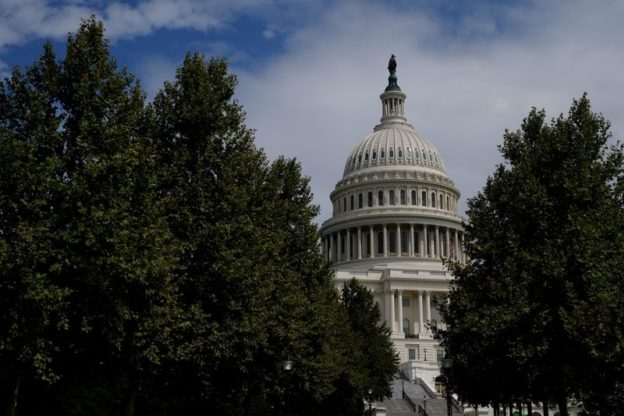2/2
© Reuters. FILE PHOTO: The U.S. Capitol Building is pictured in Washington, U.S., August 20, 2021. REUTERS/Elizabeth Frantz/File Photo
2/2
By Richard Cowan
WASHINGTON (Reuters) – A U.S. House of Representatives committee this week will attempt to advance sweeping legislation to expand healthcare benefits for the elderly and other social services as part of Democrats’ $3.5 trillion domestic investment plan.
The House Ways and Means Committee plans to debate a wide-ranging measure on Thursday and Friday. The package is expected to draw lock-step opposition from Republicans, and also faces uncertain support from Democrats with key Senate moderate Joe Manchin objecting to its large size.
“Later this week, the Ways and Means Committee will put an end to the idea that only some workers are worthy of ‘perks’ like paid leave, child care, and assistance in saving for retirement, and finally commit to investments that make these supports fixtures of the American workplace,” committee Chairman Richard Neal said in a statement.
But already there was talk of reducing the $3.5 trillion price of the legislation.
Passage in the Senate will require the support of all 50 Democrats, who aim to use a maneuver called “reconciliation https://www.reuters.com/article/us-usa-congress-reconciliation-explainer-idCAKBN2FB1Q7,” which would allow them to pass the legislation by a simple majority vote instead of the 60 votes needed for most bills in the 100-member chamber.
President Joe Biden told reporters late on Tuesday that he thought he could work out an agreement with Manchin.
“Joe at the end has always been there. He’s always been with me. I think we can work something out, and I look forward to speaking with him,” Biden said as he returned to the White House after touring sites of deadly floods in the Northeast.
Axios later on Tuesday cited sources as saying that Manchin would support just $1 trillion to $1.5 trillion in spending.
“Sanders wanted a large number and Manchin wants a smaller number and we’re going to work this process to try to reach common ground,” said a source familiar with the White House’s thinking.
That underlined the tough road that Senate Majority Leader Chuck Schumer and Biden will face to get Manchin and other Democratic moderates on board.
Democratic leaders also will have to be careful not to lose the support of the more ambitious progressive wing of the party.
White House communications director Kate Bedingfield mapped out a populist strategy in a letter to to her House Democratic counterparts on Tuesday: clear messages focused on helping working families and making corporations and the wealthiest pay their fair share, while tackling the threat of climate change.
“President Biden believes this comes down to a simple proposition: Scranton, PA v. Park Avenue,” Bedingfield wrote in a letter, a copy of which was obtained by Reuters, contrasting Biden’s working class roots in Scranton to one of the swankiest streets in New York City.
Senate Republican Leader Mitch McConnell, speaking to reporters in Kentucky, blasted the Democrats’ initiative, which aims to use federal dollars to improve childcare facilities and nursing home care, as a “$3.5 trillion to $5 trillion tax increase on the American people.”
A lobbyist familiar with internal deliberations on Capitol Hill said in a telephone interview that there was optimism among congressional Democrats that a bill would get passed and sent to Biden for signing into law.
But such a bill is more likely to be in the range of around $2 trillion, said the lobbyist, who asked not to be identified.
While the various House committees are likely to approve bills that would total $3.5 trillion, that number would get whittled down before the legislation is sent to the full House for debate and passage, the source said.
That could mean that any proposed tax increases on the wealthy and corporations would not have to be as steep as initially envisioned.

Comments are closed